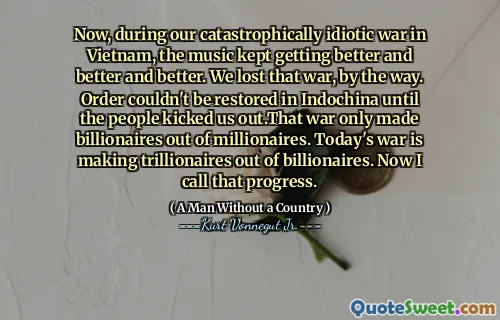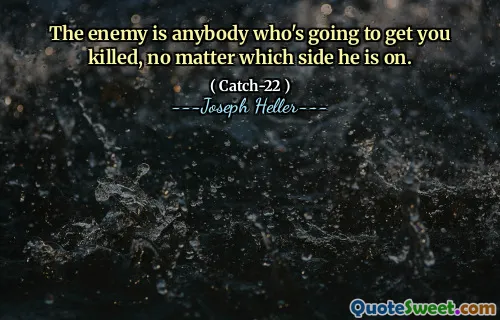
For it's Tommy this an' Tommy that an' Chuck 'im out the brute. But it's 'Savior of his country' when the guns begin to shoot.
This quote vividly captures the contrasting perceptions of soldiers like Tommy during times of peace and war. In everyday life, Tommy might be seen as a common, perhaps rowdy or unremarkable figure—someone to dismiss or dismiss with a casual insult. The lines reflect society's tendency to overlook the bravery and sacrifice of regular soldiers until they are needed in moments of crisis. Once the threat of war emerges, these same individuals become revered as 'saviors of their country,' emphasizing how context transforms public perception and societal values. It underscores the often superficial or fickle nature of popular opinion, where respect is conditional and reserved primarily for those who fulfill certain roles during emergencies. The quote gradually reveals that the true measure of patriotism and heroism reveals itself not in idle criticism but in courageous action during perilous times. It prompts us to think about how society values its ordinary men and women, recognizing their worth only when faced with danger. It also reflects on the duty of individuals and nations to uphold respect for all citizens, regardless of their perceived status during peacetime. The contrast between disdain and admiration charged through these lines encourages reflection on the true meaning of heroism and loyalty—reminding us that the worth of a person is often solidified in their response to adversity. Kipling’s work gently challenges the reader to appreciate the heroism that exists within the everyday, unglamorous often overlooked, yet vital, sacrifices made by ordinary individuals in service of their country.
---Rudyard Kipling---











